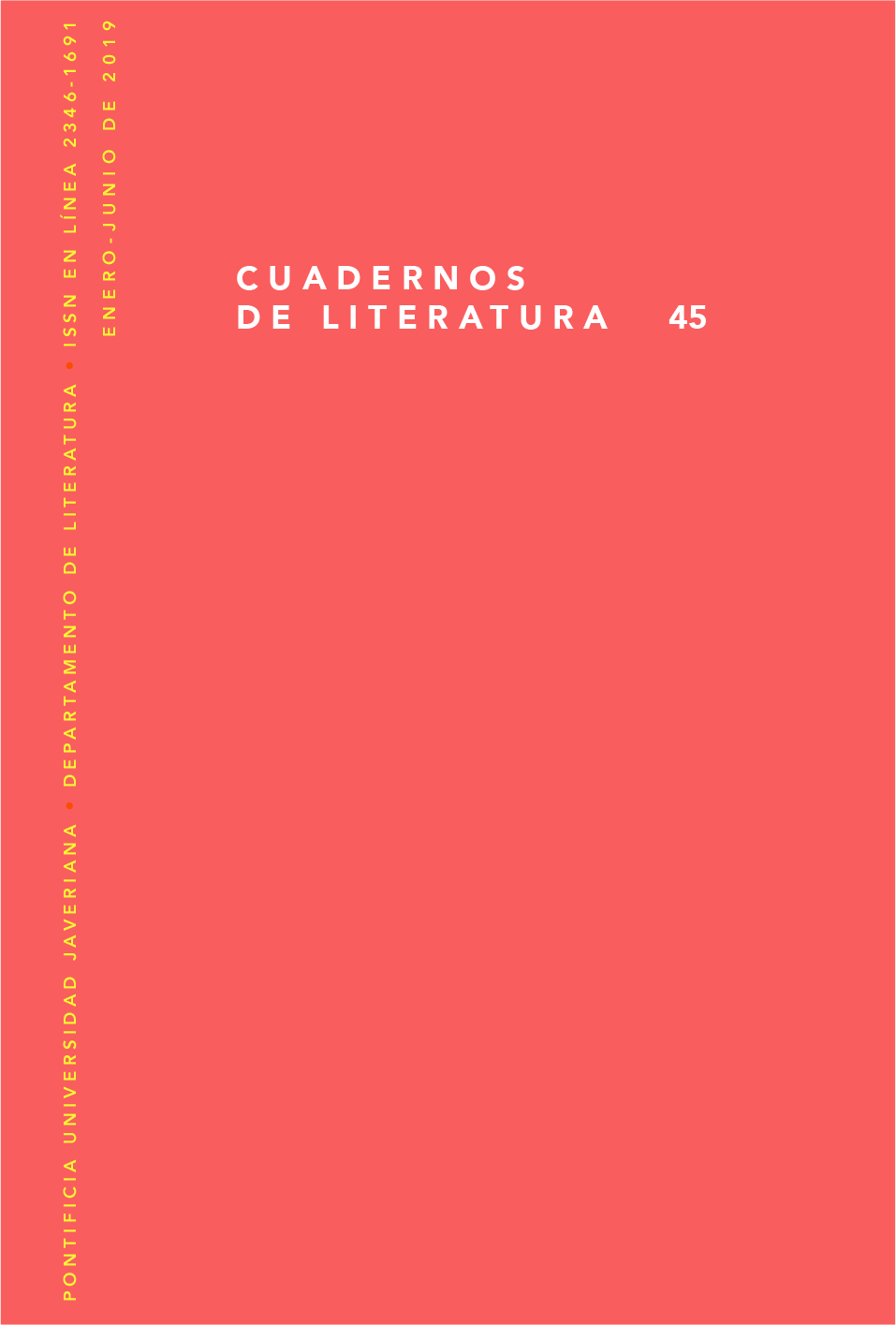Resumo
Desde a teoria da micropolítica, propomos a metáfora de Porto Rico como adicto. O adicto pode ser considerado o sinal mais adequado para identificar o verdadeiro sentido do consumo. Em El peor de mis amigos (2007), o porto-riquenho Rafael Franco-Steeves oferece um relato adicto autobiográfico: a subjetividade de um corpo marcado pelo Caribe que consome até ser consumido em um devir de cidades. Na tradição entre literatura, drogas e criação como ferramenta política, tal metáfora permite uma análise de aspectos da realidade porto-riquenha.
Agustí Farré, Anna. “Autobiografía y autoficción”. Garoza: Revista de la Sociedad Española de Estudios Literarios de Cultura Popular 6 (2006): 9-18. Impreso.
Alberca, Manuel. “¿Existe la autoficción hispanoamericana?”. Cuadernos del CILHA 7/8 (2005-2006): 115-127. Impreso.
Cabanillas, Francisco. “El texto drogado: una novela alucinante”. Polifonía Online Journal I.I (2011): 130-140. Web. 31 de julio de 2017.
Cabanillas, Francisco. “Las drogas en la literatura puertorriqueña”. Lo que somos 15 de marzo de 2012. Web. 31 de julio de 2017.
Franco Steeves, Rafael. “Droguerra”. 80grados.net. 8 de julio de 2011. Web. 15 de mayo de 2016.
Franco Steeves, Rafael. El peor de mis amigos. San Juan, P.R.: Ediciones Callejón, 2007. Impreso.
Franco Steeves, Rafael. “El Vocero: miedo, hipocresía y mentira”. 80grados.net. 3 de octubre de 2014. Web. 15 de mayo de 2016.
Franco Steeves, Rafael. “Hipocresía patente”. 80grados.net. 23 de septiembre de 2011. Web. 15 de mayo de 2016.
Franco Steeves, Rafael. “Todos tenemos un pedacito adentro”. 80grados.net. 14 de febrero de 2014. Web. 15 de mayo de 2016.
Guattari, Félix y Suely Rolnik. Micropolítica. Cartografías del deseo. Madrid: Traficantes de Sueños, 2006. Impreso.
Hernández, Carmen Dolores. “Nuevo mapa de la literatura puertorriqueña”. El Nuevo Día. 19 de septiembre de 2010. Web. 31 de julio de 2017.
López, Magdalena. Desde el fracaso: narrativas del caribe insular hispano en el siglo XXI. Madrid: Editorial Verbum, 2015. Impreso.
Manrique Sabogal, Winston. “El Yo asalta la literatura”. Babelia, El País. 13 de septiembre de 2008. Web. 15 de mayo de 2016.
Ramos, Juan Antonio. “El doctor Moncho Loro: zapatero a su zapato”. Literatura puertorriqueña del siglo XX: antología. Ed. Mercedes López Baralt. Río Piedras: Editorial de la UPR, 2004. 153-156. Impreso.
Rivera Villegas, Carmen. “Arquitectura de una metáfora en construcción: el espacio de la casa en la literatura puertorriqueña”. Céfiro: Enlace Hispano Cultural y Literario 9.1-2 (2009): 19-34. Impreso.
Rolnik, Suely. “Micropolíticas del pensamiento” (conferencia), MACBA, 2015. Web. 15 de mayo de 2016.
Sol Mora, Pablo. “Autoficción”. Diccionario VilaMatas. Web. 15 de mayo de 2016.
El material gráfico analizado o directamente referido en el artículo, debe ser de alta calidad, presentarse en hojas individuales, en orden secuencial, y con una resolución mínima de 300 dpi en formatos JPG o TIFF. Los cuadros, diagramas, fotografías y gráficas deben estar acompañados de sus respectivos pies de foto, indicando la fuente de la que fueron tomadas, el título y su ubicación dentro del texto. Es responsabilidad del autor obtener el derecho de autor y permiso para reproducir las imágenes que desea utilizar en sus artículos. Este permiso debe ser para su reproducción impresa y online. Cuadernos de Literatura no reproduce cualquier imagen sin su respectiva autorización.
La revista Cuadernos de Literatura se encuentra registrada bajo la licencia Creative Commons Reconocimiento 4.0 Internacional. Por lo tanto, esta obra se puede reproducir, distribuir y comunicar públicamente en formato digital, siempre que se reconozca el nombre de los autores y a la Pontificia Universidad Javeriana. Se permite citar, adaptar, transformar, autoarchivar, republicar y crear a partir del material, para cualquier finalidad (incluso comercial), siempre que se reconozca adecuadamente la autoría, se proporcione un enlace a la obra original y se indique si se han realizado cambios. La Pontificia Universidad Javeriana no retiene los derechos sobre las obras publicadas y los contenidos son responsabilidad exclusiva de los autores, quienes conservan sus derechos morales, intelectuales, de privacidad y publicidad.
El aval sobre la intervención de la obra (revisión, corrección de estilo, traducción, diagramación) y su posterior divulgación se otorga mediante una licencia de uso y no a través de una cesión de derechos, lo que representa que la revista y la Pontificia Universidad Javeriana se eximen de cualquier responsabilidad que se pueda derivar de una mala práctica ética por parte de los autores. En consecuencia de la protección brindada por la licencia de uso, la revista no se encuentra en la obligación de publicar retractaciones o modificar la información ya publicada, a no ser que la errata surja del proceso de gestión editorial. La publicación de contenidos en esta revista no representa regalías para los contribuyentes.
El retiro de un artículo se solicitará por escrito con un documento impreso al Comité Editorial y se formaliza con la respuesta oficial del Comité.


